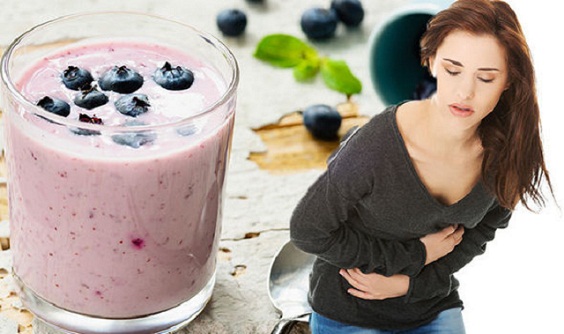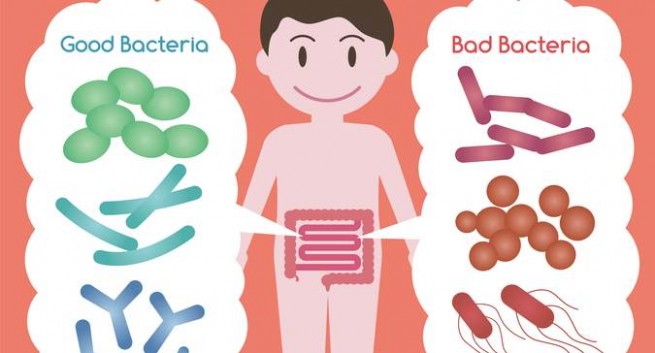How Probiotics for Dogs Can Help Reduce Itchy Skin
Antibiotics are present in most pet foods, and they could be stripping your dog’s digestive system and immune heath of vital probiotic bacteria – it could lead to an itchy dog.
Without a healthy gut microbiome, your pet will struggle to fight illness and absorb the important nutrients they need for long term wellness.
This can lead to a number of health issues, including an itchy skin. Probiotics for dogs are known to help with common canine allergies that produce skin inflammation and itchiness.
Here is everything you need to know about probiotics and how they can help your itchy dog.
What are probiotics for dogs?
Probiotics for dogs work in the same way they work in humans. While your furry friend’s digestive system and process is vastly different from yours, there are certain similarities where enzymes and bacteria are concerned.
Like humans, there are trillions of microbes that colonize your dog’s body, mostly present in the gut. Some of these are good and have a number of important functions. In one case, it can serve as a serious anti itch for dogs.
Probiotics for dogs are living bacteria found in the canine gastrointestinal tract. They are responsible for maintaining healthy digestion and facilitating the production of vitamins and minerals from food.
Lactobacillus family of probiotics and Enterococcus faecium are especially helpful to dogs, since they kill harmful bacteria like E. coli. Probiotics are also known to stop harmful pathogens from reproducing and colonizing in the GI tract.
A healthy microbiome balance refers to probiotics outnumbering harmful bacteria and other pathogens.
A number of factors like, illness, dietary changes, stress, medications and systemic disorders can upset the balance of good bacteria and bad bacteria in the intestines. This creates a wide variety of chronic health problems for dogs, including itchy skin.
How do they help dog itching?
Dog itching can be due to a number of reasons and in some cases for no reason as well. It is perfectly normal for your canine friend to scratch sometimes, particularly in the night.
However, scratching could be a symptom of some underlying pathology when a dog is incessantly licking, scratching, biting, and chewing to the point of wounding themselves.
Pruritus is the medical term for incessant scratching related to excessive itching. After gastrointestinal diseases (diarrhea), itching is the second most common reason for a trip to the vet. There are two main causes of pruritus – allergies and skin issues.
Allergies
Most allergies are immune responses to an external factor like processed foods, parasites, and seasonal attacks. In some cases, allergies could also be genetic due to poor breeding practices.
For reasons unknown, allergens (mostly proteins), attach to immunoglobulin antibody molecules in the bloodstream. This causes the immune system to start targeting mast cells that exist in body tissues and force these mast cells to release inflammatory chemicals called histamine.
Histamine causes all the common symptoms of an allergy like itchy skin, runny nose, ear infections, sneezing, and wheezing. It enters the blood causing blood vessels to constrict and leak fluid.
Histamine also stimulates production of white blood cells that attempt to expel the allergen from the dog’s body by further irritating skin tissues. This can cause rapid scratching and itching.
Beneficial bacteria in the body are proven to boost the immune system and protect unnecessary immune reactions from taking place. Probiotics help dogs with allergies by calming their immune system kind of like scratching their bellies makes them happy too.
Probiotics also promote the production of lactic acid in the gut, which makes the environment uninhabitable for pathogenic microbes.
Clinical research shows that beneficial probiotic bacteria such as Lactobacillus bifidus and Lactobacillus acidophilus can reduce the likelihood of allergies in dogs.
Skin Issues
Dry skin is a common cause of dog itching. Other reasons include oily, dirty, grimy skin, and infections. Skin conditions are fairly easy to recognize and are common in areas with low humidity.
Dry skin is characteristic of dandruff in the undercoat and the skin itself may be tough or cracked in areas. Dry skin can cause serious dog itching even with the gentlest touch.
There are many commercial dog foods which are highly processed and claim to provide lustrous and shiny coats, where in fact they actually contribute to a dehydrating effect on the skin and hair.
These foods are primarily corn based and stimulate increased thirst which is not good for the gut microbiome of your dog.
Probiotics for dogs help in many digestive functions like breaking down of food and absorption of nutrients. This in turn reflects favorably on the skin. Your dog is less likely to have skin issues when they obtain all the necessary nutrients from the food they eat.
Certain probiotics for dogs also release lactic acid which increases the intestinal acidity. Most disease causing bacteria are unable to survive in highly-acidic environments.
Some topical probiotic products can be directly applied to your dog’s coat. This prevents skin inflammation related dog itching due to bites from parasites like ticks and fleas.
What are some other dog health benefits?
Probiotics for dogs have a number of proven health benefits for your four-legged friend. Apart from reducing, preventing and treating itchy skin conditions, probiotics can also be used to aid digestion, boost immunity, and enhance nutrient absorption. Some supplements meant for older dogs help to support bone health and prevent tumors.
How to include probiotics in your dog’s diet?
Most dogs don’t mind dairy based probiotics in the form of yogurt, buttermilk or kefir milk. If your dog is vegan, you can also try soy-based probiotics like natto or miso. However, there are many canines who do not readily accept probiotic based foods in their diet.
Supplements are the better option for these dogs. You can easily make your supplement bottle last a long time by emptying the contents of one capsule in a pint of goat milk and refrigerating it.
You can then add this milk to your dog’s diet and make it last for up to a week. It’s paramount that you buy a symbiotic probiotic which consists of prebiotic fibers as well. These fibers act as a source of nourishment for the probiotics.
How long does it take for probiotics to work?
At the onset, it is quite possible for probiotics for dogs to take several days for their digestive system to balance and for the probiotics to really start working. If you are looking for lasting affects, however, it is important to know that probiotics can take weeks to really start having a major impact. It is wise to not get discouraged of your itchy dog doesn’t seem to be getting much relief early on – it could just take some time.
Health Matters
Probiotics can be a healthy addition to your dog’s diet and keep them safe from a number of health conditions, including itchy skin. They work to promote optimal functioning of the immune system and digestive system that has positive effects on overall health.




